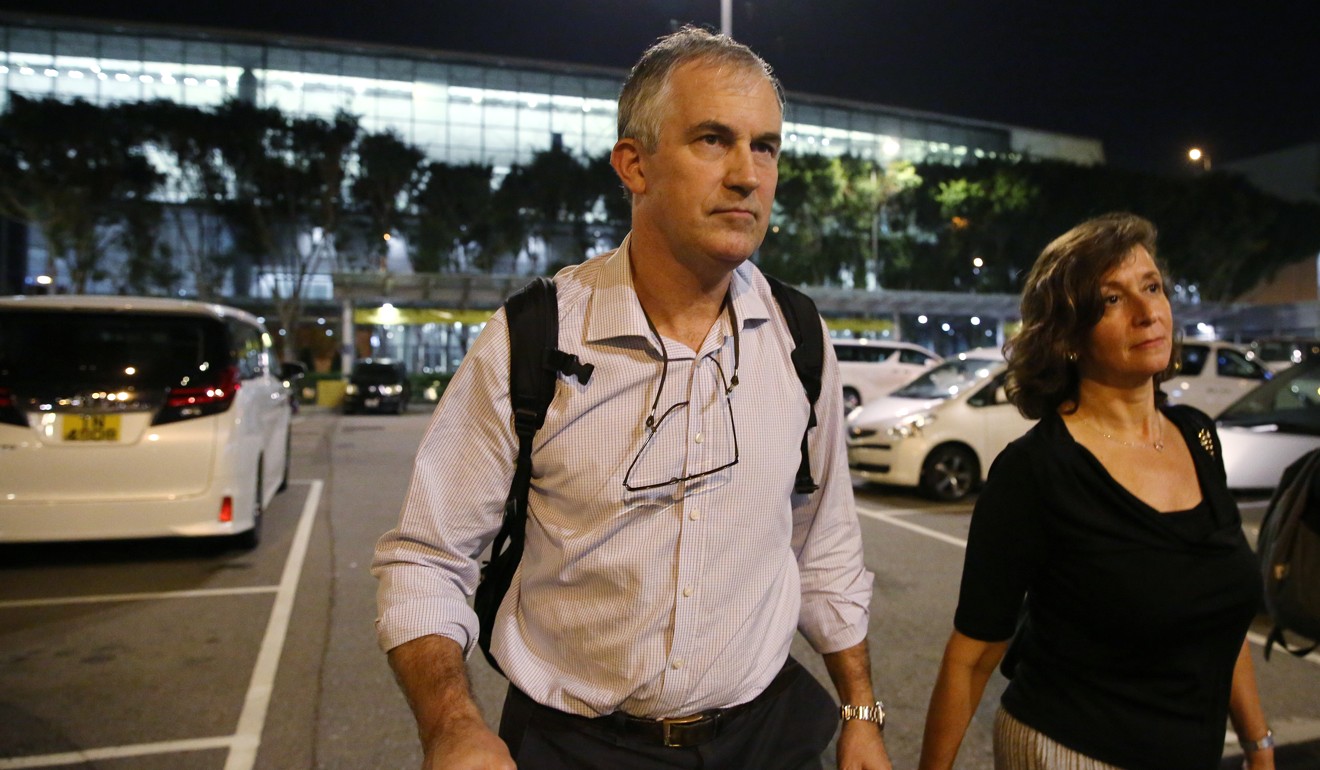
Ex-British foreign secretary and US senator urge action on Hong Kong visa refusal of Financial Times journalist Victor Mallet
Pressure comes as US report calls for review of city’s human rights conditions before continuing to grant it special trade status

Rifkind went on to describe the visa ruling as a “bizarre decision” showing “that the integrity of this settlement sits on a knife edge”.
The UK government should make retaining the integrity of the handover settlement a top priority as it is in our national interest
“It exposes a worrying trend: that Hong Kong’s “core values”, including free expression and the rule of law, are under pressure,” he wrote, adding that “‘national security’ increasingly being used to justify disproportionate constrictions on fundamental rights”.
Rifkind urged Hong Kong officials to consider retracting their decision, recognising that “the city’s reputation relies on its openness”.
“The UK government should make retaining the integrity of the handover settlement a top priority as it is in our national interest,” he added.
Speaking at a press conference on the US Congressional Executive Commission on China’s (CECC) annual report scrutinising human rights conditions in China and Hong Kong, Rubio, also the committee’s co-chairman, cited reports of foreign news agencies being forced to close bureaus in China in the past and said Mallet’s case reflected how similar tactics were now being “extended to Hong Kong”.
The senator said Beijing’s goal was to influence global coverage by denying access to journalists who go too far.
The CECC report also described the “continued erosion” of Hong Kong’s autonomy in recent years and reiterated calls for the enactment of laws requiring the US government to review Hong Kong’s human rights conditions before continuing to grant the city its special economic and trade status, a standing not enjoyed by the rest of the country.
How special is Hong Kong’s SAR status amid the US-China trade war?
Asked whether the incident would affect the special status conferred under the US-Hong Kong Policy Act, Rubio cautiously said he would not speculate because “that’s a broader geopolitics decision that needs to be made [by the US government]”.
Britain, the US and the European Union have all expressed concerns over Mallet’s visa refusal and urged Hong Kong to explain the decision, although Lam has said that the Immigration Department is not obliged to explain individual cases.
Several international papers including The New York Times and The Washington Post also expressed their concerns over the case on Tuesday in the US in respective editorials titled “China’s Media Crackdown Spreads to Hong Kong” and “China’s Authoritarian Export”.
Visa denial for Victor Mallet sends ‘chilling message’, Financial Times says
Will Victor Mallet visa case damage Hong Kong's reputation for rule of law?
Lam said there were about 1,300 US companies in the city, adding: “These are of mutual interest between Hong Kong and the US, which require both governments to safeguard together.”
“You are now jeopardising the city and the country’s reputation,” he added.
Lawmaker Ted Hui Chi-fung, Wu’s party colleague, directed a similar question to the chief executive at the Legco session. Hui asked Lam why she remained tight-lipped about the reason for the visa refusal, while assuring him that the government always took a stance of safeguarding freedoms.
“You dare not admit the real reason,” Hui said of the immigration decision. “That’s not honourable.”
“A gentleman uses his tongue not his fists,” she said. “That’s a basic principle.”
Separately, a Hong Kong government spokesman said: “The HKSAR Government reiterates that foreign legislatures should not interfere in any form in the internal affairs of the HKSAR.”
Additional reporting by Tony Cheung


